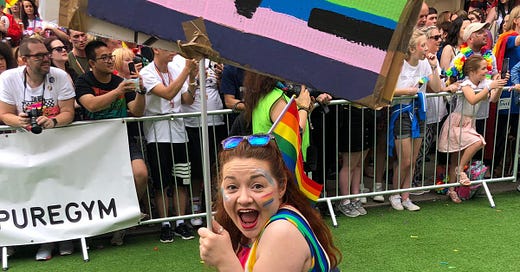Dr Hannah Barham-Brown on being a disabled queer woman, dating and role models
In the run up to my book launching in September, I am running a series of interviews with fabulous disabled women. Today: the fantastic Hannah on matters of the heart
Hello,
Last week, I introduced a new series which I’m running in the lead up to the launch of my book in September.
In the series, I’m interviewing some of the brilliant disabled women I admire, highlighting the commonalities and differences between our experiences.
I started the series with the first part of a fascinating conversation I had with Dr Hannah…
Keep reading with a 7-day free trial
Subscribe to The View From Down Here to keep reading this post and get 7 days of free access to the full post archives.


